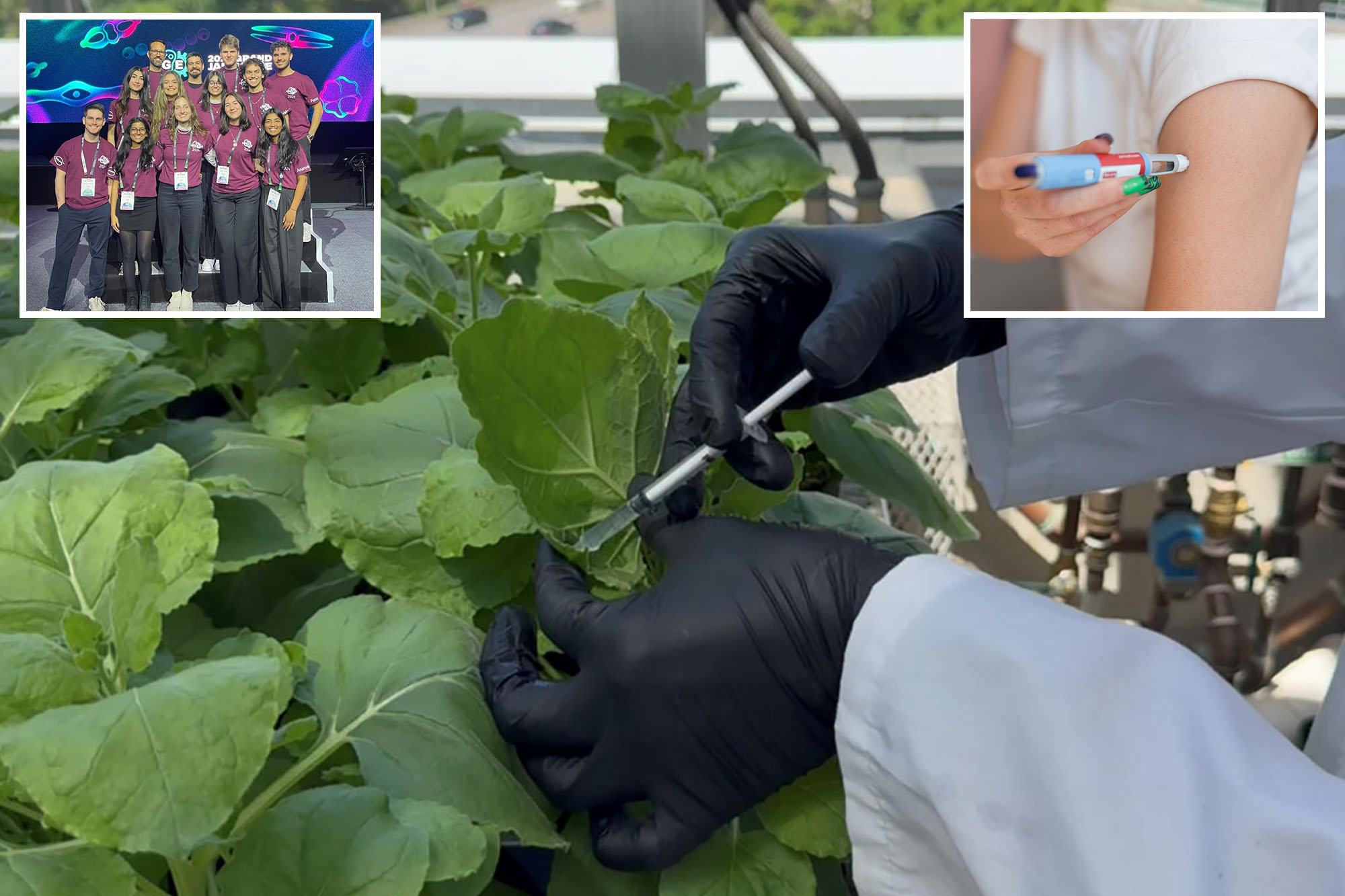
Money may not grow on trees – but soon ozepic.
A team of university students with Ottawa enterprises, undergraduate students have unveiled a project that can revolutionize the pharmaceutical industry.
Called Phytogene, the project uses the Nicotiana Benthamaniana factory to make the GLP-1-Class agonists of drugs whose weight loss reversed by ozepic diabetes.
Utilizing this plant-based production system also known as biofarming-anchos aims to provide a sustainable and accessible alternative to traditional methods of pharmaceutical production, which are considered bad for the environment-as and your portfolio.
“Inspired by the latest absence of Ozepica, we built a model system of the concept that expresses GLP-1 functional agonists in plants,” said Victor Boddy biotechnology and biomedical science, which is leading the project in a statement.
“We aim to create a future where people can safely increase their treatments at home, without concerns about insurance, cost or availability.”
Driven by an increase in demand, ozepic deficiencies have continued around the world since 2022, when the popularity of the drug as a method of weight loss became widespread.
This concern raised among health care professionals – not only due to the lack of impact can be those who need most medicines, but also because of the health risks presented to the general public from counterfeit versions of medicines.
Some users have even traveled thousands of miles to get their hands in the recipe.
In February 2025, the FDA announced that the lack of semaglutide medicine was resolved.
If the Phytogene project gives fully fruit – potentially can never happen again.
“Phytogene offers a unique, biotechnology-resistant approach by providing an environmentally friendly solution to the critical drug access crisis,” said Teagan Thomas project co-leader.
“We are excited to further develop this concept in a applicable commercial project with support from entrepreneurship capitalists and scientific advisers.”
The team recently discovered the project at IGEM Grand Jamboree in Paris, where they competed against 430 international teams to win a gold medal.
While the prospect of being able to grow ozepic at home is undoubtedly exciting, it is important to note that the project is still in its testing phase. Extracts derived from plants have not yet suffered human evidence.
“We are now analyzing the blood glucose level and insulin to evaluate the answer,” Thomas said. “We also plan to do bioactivity analysis to test drug effectiveness in human cells.”
#grow #home #ozepica
Image Source : nypost.com